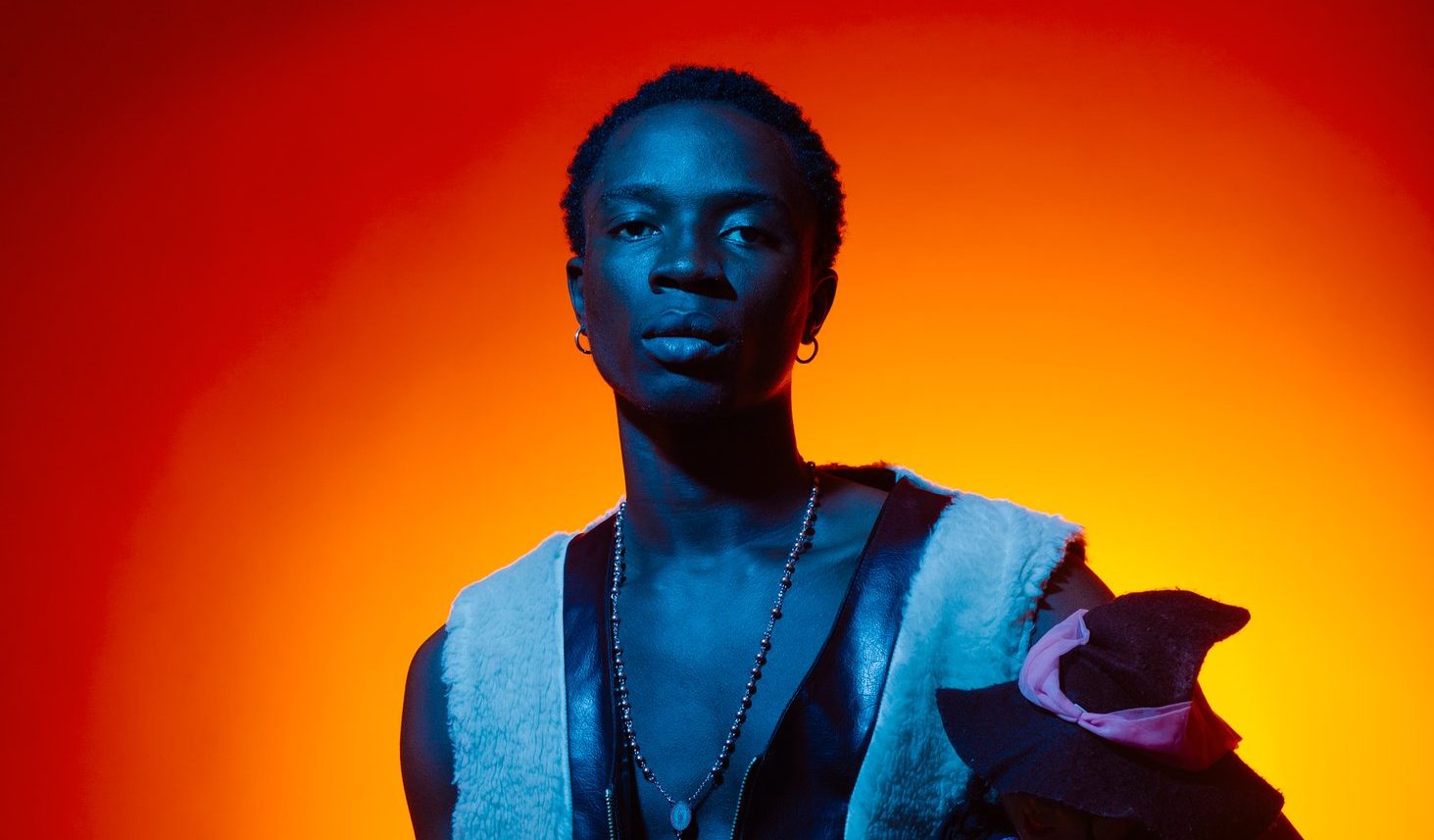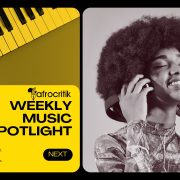“I think Arewa Sound is something really special, but it hasn’t been fully tapped into yet. What I’m trying to do is blend the old school with the new school, to create something fresh that still carries that cultural depth.” — FirstKlaz
By Abioye Damilare Samson
Sometime between 2013 and 2014, in a boarding school in Abuja, a teenage student climbed atop a speaker during a social night and began to rap. What followed was a thunderous standing ovation from the students in attendance. That teenage boy was FirstKlaz (Joseph Justice Elsa), and that unforgettable moment planted the seed for him to grow into one of Nigerian music’s most intriguing cultural experiments. “I think it was the confidence and the way I carried myself”, he recalls of that unforgettable moment in our conversation. “At the time, not many people had that kind of stage presence or charisma in school”.
Today, as Nigeria’s capital, Abuja, experiences an unprecedented musical renaissance—spearheaded by artistes like Odumodublvck, Azanti, Bloody Civilian, and many others—FirstKlaz has emerged as one of its most compelling voices. The bustling music scene that once operated in the shadows of Lagos has, in the past few years, found its spotlight, and the city’s rising stars are seizing the moment with fierce determination and clear intent.
Of this new generation of Abuja-bred talents, the Nasarawa State-born, Abuja-raised Pop fusionist stands out for his genre-fluid approach, warping influences from Soul, R&B, and Hip-Hop with unmistakably African textures ranging from the pulse of Fuji to the rich, rooted rhythms of Arewa sounds shaped by his lived experience.
Growing up in Abuja wasn’t the privileged experience many associate with Nigeria’s capital city. In fact, during our conversation, FirstKlaz is quick to describe his upbringing, jokingly framed through a recent pop culture trend, as being from “the Lapo side” rather than among what he calls the “Nepo babies”, a distinction that shaped his work ethic and perspective.

As someone from a humble background, he learned early that progress wasn’t automatic. And since nothing was handed to him, every step he took required deliberate effort and unwavering determination. This working-class foundation would prove formative, instilling values that would later drive his artistic vision and his commitment to authenticity in his music. “The city has so many sides to it”, FirstKlaz explains. “There’s the part for what I’d call the Nepo babies, and then there’s the part for the Lapo babies. We came from the Lapo side”.
Like many artistes whose earliest sonic memories were shaped by the music their parents played at home, FirstKlaz’s introduction to sound was subconscious and deeply formative. His father’s record collection became an unwitting musical education for him. “My dad used to play a lot of Nigerian legends like Sunny Ade, Fela, and a whole lot of Yoruba music. At the time, I didn’t even realise I was absorbing it, but subconsciously, it all stuck”. Those sounds, along with influences ranging from Angelique Kidjo and Bob Marley to Ice Prince and Olamide, created the eclectic foundation that would later inform his boundary-crossing approach to music.
It’s no surprise that the diversity of his influences mirrors his artistic philosophy. “I’ve always wanted to blend the old school with the new school”, he says, a mission statement that would eventually crystallise into his breakthrough “Gen-Z” series. FirstKlaz’s artistic vision began taking concrete shape in 2024 with “Gen-Z Fuji”, a swaggering nod to Fuji music’s rhythmic grit and energy, complete with a background sample of the iconic voice of Sikiru Ayinde Barrister, the undisputed pioneer of the genre.
He later expanded on the idea with “Gen-Z Fuji II”, teaming up with Terry Apala for a grittier second version. Five months later, he followed up with “Gen-Z Faaji”, a groovy, catchy party anthem featuring Joeboy that pointed up his ability to navigate mainstream pop without losing his distinctive edge. But it was “Gen-Z Arewa” that truly announced his arrival as a force in Nigerian music.
The track, built on Northern rhythms and cadences, featured a striking duet with Iliya Entertainment, a veteran Neo-Folk Traditional Northern band. While the collaboration stands as one of the rare fusions between grassroots tradition and Nigerian pop’s mainstream, it’s only natural that some might wonder how it came to be in the first place.
When I asked how he met the Iliya Entertainment band, what drew him to their sound, and what the creative process was like, he lit up in response and recalls it all as something of a ‘divine’ moment. “When I met them, it felt divine, like it was meant to happen”, FirstKlaz says. “I knew immediately that I had to do a full project with them. I didn’t even hesitate, it just felt right”.

When they teamed up on “Gen-Z Arewa” in 2024, the collaboration stirred conversations about a fresh sonic direction and the emergence of a voice determined to usher in a new era where Northern Nigeria finds fuller, more nuanced representation in pop culture. The creative process was, in many ways, a mutual education. Iliya Entertainment band, with over 30 years of experience performing traditional music, had rarely ventured into contemporary pop territory. FirstKlaz, on the other hand, was stepping into the raw textures of Northern folk at their purest.
Together, they navigated unfamiliar ground by exchanging ideas, adjusting to each other’s rhythms, and gradually forging a sound that felt ancient yet strikingly new. The Kalangu (talking drum) rattled with a hypnotic pulse, while the Goje (two-stringed fiddle) threaded its way through polished pop production.
Upon release, the track quickly found mainstream acceptance, gaining momentum on TikTok and prompting a co-sign from industry heavyweight, Olamide, who, impressed by the song’s brilliance, messaged him directly on Twitter to acknowledge his artistry.
Defining Arewa Sound for a New Generation
When asked to define Arewa sound, FirstKlaz’s response reveals ambition and respect for tradition. “I think Arewa Sound is something really special, but it hasn’t been fully tapped into yet. What I’m trying to do is blend the old school with the new school, to create something fresh that still carries that cultural depth. The goal is to make a sound that even people outside the North can connect with, while still preserving its roots”.
This philosophy extends beyond music into his visual storytelling. His videos are often layered with symbolism and guided by a distinct creative vision, drawing from unexpected influences.
In one of the visuals of “Soyaiya”, his recent collaboration with Iliya Entertainment, he took cues from a scene in Ryan Coogler’s 2025 film, Sinners, specifically a charged dance sequence that precedes a supernatural transformation. “There was something raw and intense about it”, he tells me. FirstKlaz wasn’t aiming for a literal recreation, but rather to translate that same energy into a visual that matched the emotional tone of “Soyaiya”.
Perhaps the most unexpected motif in FirstKlaz’s visuals is the doll he holds in his videos. The doll, named Amanda, carries the memory of a past relationship with a girl who once introduced him to horror films, particularly Annabelle, which left a lasting impression. “We didn’t exactly have issues”, he explains, “but you know how it is here, when someone plans to leave the country, they often don’t tell anyone. She just left”. Not long after, during a visit to the mall, he spotted a doll that instantly reminded him of her. He bought it, named it Amanda, and over time, it evolved into a symbol of love, loss, and what has now become his most recognisable visual signature.

Sadly, but unsurprisingly, FirstKlaz faces a challenge that many regional artistes encounter: the perception that singing in local languages or drawing from specific cultural traditions limits global appeal. His response reveals both historical awareness and unwavering faith in the future of Arewa sound. “Everything has a starting point. There was a time when even Yoruba sounds weren’t widely embraced globally, but the music still broke through. I believe the same is possible with Arewa-inspired music”, he says.
This belief isn’t just theoretical optimism. It’s anchored in a sharp understanding of cultural momentum and community. FirstKlaz is part of a broader Northern movement, one that includes talents like Rumerh, DJ AB, Kheengz, B.O.C Madaki, and Classiq, artistes who, like him, are expanding the creative possibilities of Northern expression within Nigerian Pop. It’s a collective wave of voices that deserve more visibility in the national conversation.
Meanwhile, when it comes to collaborations, FirstKlaz’s approach is, more than anything, intuitive. Having already worked with established names like Joeboy, Zlatan, Jeriq, and Terry Apala, he keeps his dream collaboration list refreshingly short: just Kanye West. “I feel like we share a similar creative energy and vision. Our vibes align”, he explains, revealing an artiste confident enough to aim high while remaining grounded in cultural and artistic truth.
The Future of Arewa Sound and Global Ambitions
FirstKlaz’s vision for Arewa sound extends far beyond his own career. Currently working on a special project with Iliya Entertainment, he was struck by learning about their three-decade musical journey. “That really struck me. It gave me a deeper understanding and respect for the culture and sound, and it pushed me to start working on this project with them”.
That discovery led him to make a bold decision. Despite already having another project fully recorded, he put it on hold to prioritise what he saw as a culturally urgent collaboration. The depth of Iliya’s legacy and their commitment to traditional music inspired him to channel his energy into something larger than himself.
The goal, according to him, wasn’t just to make music, but to elevate Arewa Sound into a globally resonant movement. His commitment to this vision is both personal and collective. “I’m not abandoning the sound. It’s still part of who I am. But more importantly, I’m aligning myself with a vision much bigger than me. I truly believe Arewa Sound can reach the world, and I want to be one of the people who helped make that happen”.

With five projects already recorded and plans for multiple EPs this year, FirstKlaz is positioning himself not just as an artiste but as a cultural architect. His approach, blending traditional elements with contemporary production, working across linguistic and cultural boundaries, and maintaining authentic connections to his roots, offers a template for how regional sounds can achieve global resonance without losing their essential character.
As Abuja continues its creative explosion and Nigerian music stretches further across the globe, FirstKlaz’s Arewa sound might just prove visionary. The teenager who once climbed atop a speaker in a boarding school dormitory has grown into an artiste determined to place Northern Nigerian culture and sound on the world map. And if his early success is any indication, then we can hazard a guess at his trajectory: straight to greatness.
Abioye Damilare Samson is a music journalist and culture writer focused on the African entertainment industry. His works have appeared in Afrocritik, Republic NG, NATIVE Mag, Culture Custodian, 49th Street, and more. Connect with him on Twitter and IG: @Dreyschronicle




